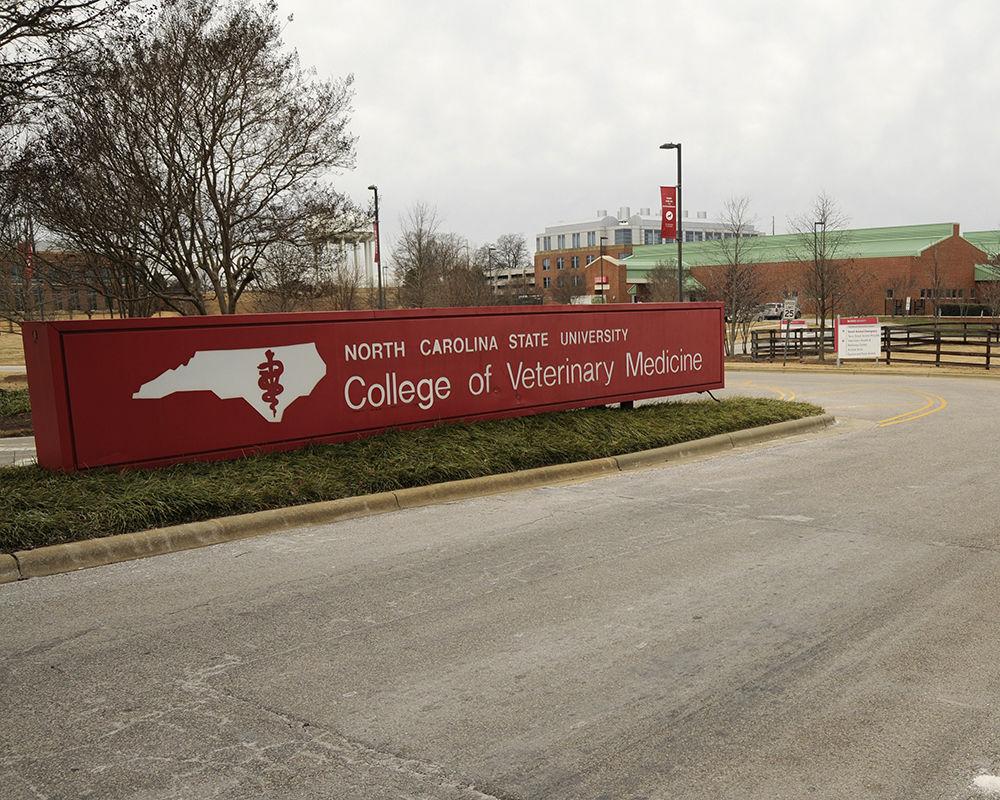With studies ranging from infectious diseases to neurobiology, the NC State’s veterinary school research program engages all students in studies that affect both human and animal health.
The research program, which has been a part of veterinary school since it opened in the late 1980s, aims to conduct studies that contribute to their mission.
“Our research is done to support our mission, and what we are all about is health,” said Paul Lunn, dean of the College of Veterinary Medicine. “Our role is to improve health of animals, of course, because we are the College of Veterinary Medicine, but also it’s our goal to improve the health of humans and also the environment.”
While the veterinary college is geared towards teaching people about the veterinary sciences, Lunn says that all students are welcomed to get involved in the research program.
“We are really proud of how many of our veterinary students get involved, although we always seek to increase this,” Lunn said. “First of all, we work hard to find opportunities for undergraduate students from NC State who are not currently part of the veterinary program to come and get involved in research labs, to work in research labs, to be a part of projects.”
Kathryn Meurs, associate dean of research and graduate studies, discussed that another mission of the research program is to train students not only in veterinary sciences, but also in biomedical research.
“We train veterinary students to become veterinary doctors,” Meurs said. “We train graduate students to become biomedical researchers in both human and animal health. We also train undergraduates. We have an undergraduate research program to train undergraduates in biomedical research as well and also to give them some exposure to veterinary medicine.”
Students are able to get involved in the veterinary school’s research through summer research programs, the Ph.D. program or by working in the research laboratories.
Elizabeth Walsh, a third-year studying animal science, works with the research program to study tick-borne diseases. The lab she works in helps to make discoveries and does extensive testing that could not be done at a veterinarian’s clinic.
“I work a tick-borne disease diagnostic lab,” Walsh said. “We get blood samples or tissue samples from anywhere in the world and sample those to see if there’s any tick-borne diseases in the DNA. I do polymerase chain reaction.”
According to Meurs, some of the research studies investigate topics like gastroenterology and regenerative medicine.
“We do quite a bit of work in the regenerative medicine field,” Meurs said. “That would be things like trying to develop even better replacement tissues or cells in individuals with bad heart disease or bad lung disease. So we’re growing new replacement lungs cells to put into individuals that have those type of chronic diseases.”
The research program has around 164 faculty members who study their individual topics, but also collaborate with one another.
“Many of them can coalesce under certain areas,” Meurs said. “There are several faculty members that work under in gastrointestinal area, there are several that work in neurobiology or cardiology, but within that area each have their own niche that they feel the most passionate about.”
According to Walsh, she’s gained a number of benefits from participating in the research program.
“I started there as a work-study student, and now I’ve worked there a year,” Walsh said. “I’ve been able to be more comfortable with things so I don’t have to ask as much. It’s been more independent now… and giving me more confidence I guess, learning something that I wouldn’t have learned otherwise.”








